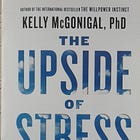When I first discovered yoga and meditation twenty+ years ago, I knew my emotions were getting the best of me. I had anxiety and anger bubbling over inappropriately and needed help. As a professional educator, who does her research and preparation thoroughly, my instinct was to read everything on the topic. As a workshop facilitator and instructional designer, while I was doing all that reading and comprehending, then it wasn’t much of a leap to develop a workshop or lesson. I learn better when I am committed to teach a topic.
One of the themes of Accompanied is calming the runaway mind and have been reviewing the books on my shelf, enjoying the luxury of looking back on how I have come to be here now. This series looks at what non-fiction ideas and concepts from books have shaped my current worldview. In re-reading my books, I remember what made a lot of sense back then, and still does. Interestingly, I am noting how I have also moved on, evolved from the particularly stressful time in my life a decade ago.
One of my yoga teachers recommended Robert Sapolsky’s Why Zebras Don’t Get Ulcers and I began my deep dive into ‘science for non-scientists’ books on mind-body well-being. Sapolsky uses the analogy of zebras and lions, prey and predator in the wild to explain our body’s response to stress. His storytelling is humorous and engaging; it would be fun to listen to him give lectures. His writing is superb, the chapter sections are clear, and a motivated reader can get through the book without too much stress. His explanations range from oddly obscure, to comfortingly familiar. Several times in each chapter, I found myself nodding in agreement – I totally get what he means – and that connection renewed my willingness to slog through the scientific jargon.
The body responds to stress not only when ‘fight or flight’ action is required but also when the person is thinking about a stressful time. Zebras don’t get ulcers because they don’t fret about when the next lion attack is going to happen. People are stressed because of our ability to replay a heightened experience such as a relationship dispute and to worry about it happening again.
Strong emotional reactions in our everyday lives, such as anger, fear, dissatisfaction or sorrow, activate the body’s stress mechanism. The stress mechanism increases our alertness, vigilance and attention that is needed during the ‘fight or flight’ response. The intensity produced in the body is designed to be short term and to reset to normal after the threat is resolved. After a zebra runs away from the lion, it gives itself a shake, resets its systems, and goes back to grazing. If a person is not able to feel safe, to eat and sleep properly, to have time to rest mentally and physically – to reset our body and mind – there is a risk of the heart, respiratory, and adrenal systems to break down over time.
Sapolsky offers tips for managing stress that seem quite well known now, but note that he published the Third Edition of this book back in 2004. His points are sound, and bear repeating. Exercise provides the body with an outlet the ‘fight or flight’ preparedness that has happened. Social support helps with reframing your perception of the situation. We need to find ways to feel that it will all work out ok, when so much is beyond our control, and cannot be predicted. We’ve got this.
With many strategies and tools available to us, the trick is to know which strategy to apply for each situation, to find what works for ourselves. It’s not easy, and from my own experience, just because one stress management method worked well, doesn’t guarantee that it will continue to be effective for the next time. We are destined to always be seeking more, continuously improving. If you like to know the science, this book is a great place to start.
Related Posts








Oh this sounds like a great book - I also have an affinity for "science for non-scientists"! Going to check the library :)